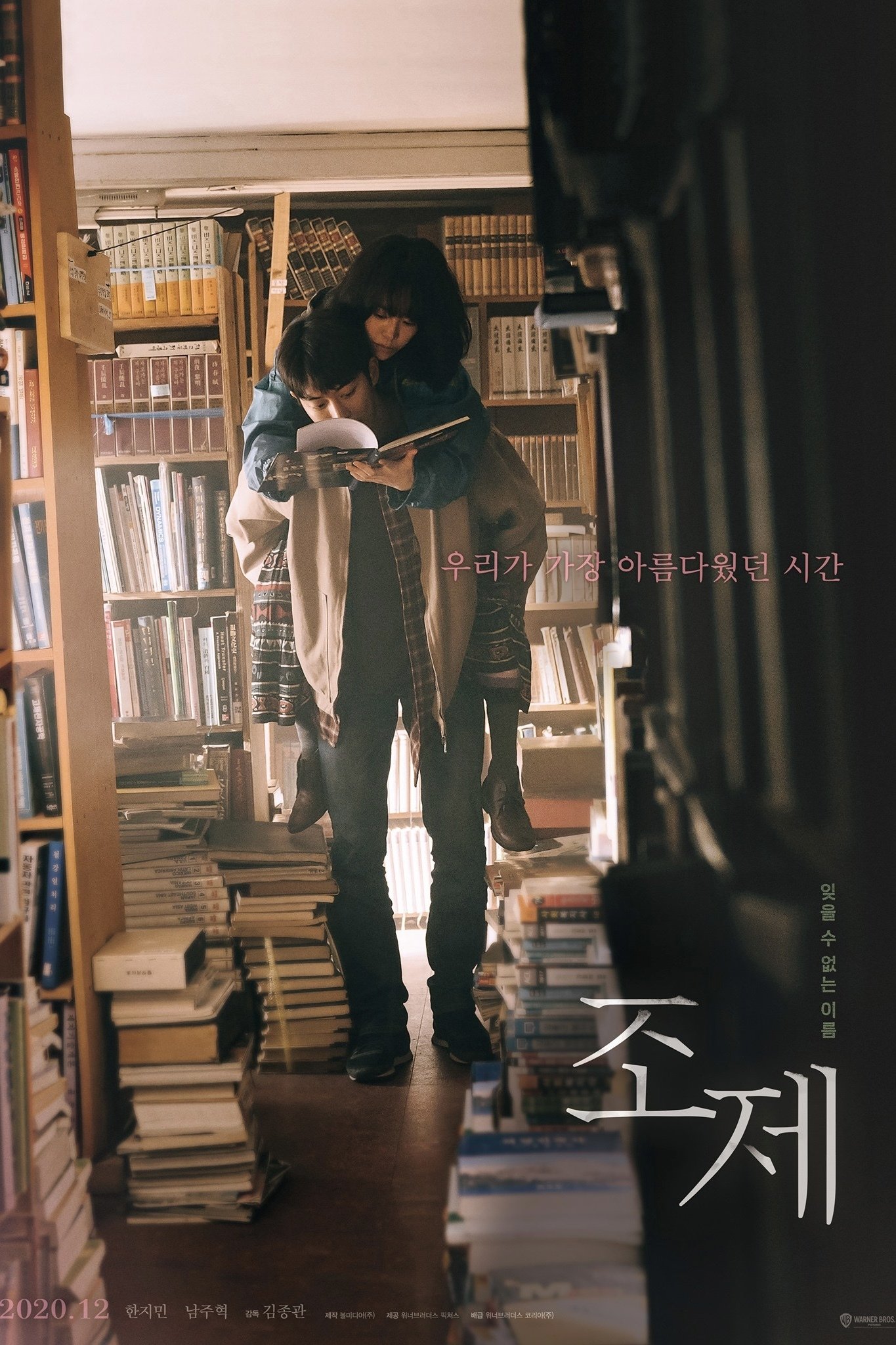The film Jos├®e drew attention when Han Ji Min and Nam Joo Hyuk reunited once again since The Light in Your Eyes. Though there were concerns over the original film directed by Isshin Inudo being so famous, expectations were still high on how The Table director Kim Jong Kwan will deliver a lingering aftertaste with the Korean remake. What will Jos├®eŌĆśs new story look like? College student Young Seok helps a woman who accidentally fell off of an electric wheelchair on the street. She is wearing a dark hoodie as if she doesnŌĆÖt want to show her face and tells him to go away. But the wheelchair is broken, and she has no other choice but to accept Young SeokŌĆÖs help. After arriving home, she prepares a meal for him instead of saying thank you. And thatŌĆÖs Young Seok and JoseeŌĆÖs first meeting. Young Seok builds up a romantic relationship with a girl taking the same class and even has an inappropriate relationship with a professor, but strangely, he canŌĆÖt shake off Josee, a girl living alone in a shabby house with her grandmother, from his head. Using excuses like helping her grandmother who is taking home a discarded closet and bringing the holiday gifts (seaweed and spam) to her home saying that he doesnŌĆÖt like them, Young Seok frequently visits JoseeŌĆÖs home. And the more they talk, Young SeokŌĆÖs imagination runs wild and falls madly into Josee, who shows her unique taste but still looks at the most common things with shining eyes. Josee, who has a physical disability, can only see the world through books that her grandmother has picked up for her. This shabby house surrounded by books is her own little world. But she is bothered when Young Seok comes in knocking on her world, and the fact that he told her stories to others without consideration hurts her. But soon, Josee realizes that her feelings for him is love and accepts him into her world. Like JoseeŌĆÖs low whispering voice, the remake film flows in a calm and realistic tone, unlike the bouncy and bubbly original film. The chemistry that Nam Joo Hyuk and Han Ji Min shows once again doesnŌĆÖt give us room to be bored. How Han Ji Min expresses the feelings of first love shines bright and how Nam Joo Hyuk gets absorbed in Josee as if he has really become Young Seok is outstanding. Given that the original film was directed in 2003, Jos├®e has removed unnecessary expressions and charactersŌĆÖ storytelling shown in the original work. But the fact it failed to fill these blank spaces sticks out. There are two characters that present ŌĆ£holesŌĆØ in their storytelling, and theyŌĆÖre Young SeokŌĆÖs professor and classmate. The professor seems to have been adapted from TsuneoŌĆÖs sex partner Noriko, but like the original work, I donŌĆÖt really see the need for her role. In the original film, Kanae is the one who stirs up Tsuneo when he slowly drifts away from Josee. In Jos├®e, Young SeokŌĆÖs classmate seems to play the role, but the holes in her narrative instead makes Young SeokŌĆÖs actions seem ambiguous. Young SeokŌĆÖs emotions that seem to have started with a devil-may-care attitude and went to unwavering love are solid, but they feel thin for some reason. In particular, the scene in which Josee, who used to hold onto Young Seok with obsessive words, lets him go saying that she will live on with the feelings they have shared together does not fully support her emotions in how and why she came to such a decision. The winter scenery where the two made memories as they lived together is beautiful, and the process of Josee, who was trapped inside her own world, opens up and grows as a person is mesmerizing. However, the connections between the emotions become loose because of some of the apparent loopholes. Eventually, the beautiful aftertaste between Josee and Young Seok is dimmed, and we are only left with a bitter regret. ┬Ā Verdict: ItŌĆÖs a pity that the holes in the emotions are not filled (5/10)




